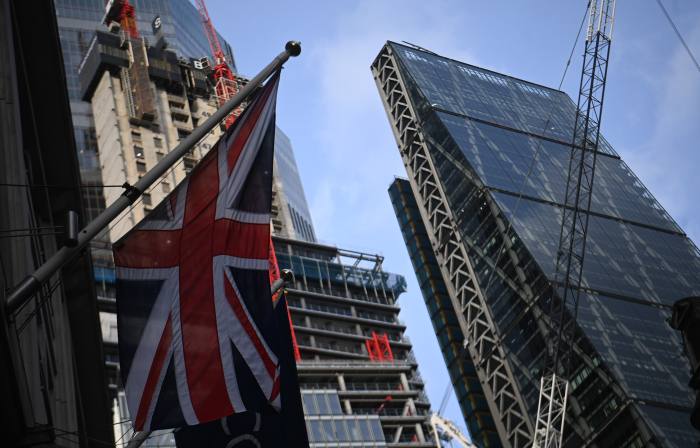
Inflation will be so high this year that, in conjunction with other factors, disposable income will fall by the most in 55 years, according to the government’s own independent forecasting agency.
In its statement accompanying the budget, the Office for Budget Responsibility (OBR) wrote: "The rise in inflation to a 40-year high this year is expected to [produce] the biggest fall in living standards in any single financial year since ONS records began in 1956-57."
The OBR quantified this further by saying that after inflation, household disposable income was likely to fall by around 2.2 per cent per household this year.
In his Spring Statement, chancellor of the exchequer Rishi Sunak said he expected inflation to average 7.4 per cent in the UK this year. As that is an average number and a level that has not yet been reached in the UK, the expectation is that inflation will be higher than that average number for several months this year, with the OBR forecasting inflation to peak at over 8 per cent this autumn.
A reduction in disposable income is negative for GDP growth, and the chancellor’s inflation announcement was accompanied by a downward revision in GDP growth forecasts for this year and next. Sunak said he now expected GDP growth to be 3.8 per cent this year, compared with 6.5 per cent forecast last October.
There is no anticipation of GDP recovering in 2023, with the rate expected to be 1.8 per cent.
The government will spend £83bn on servicing debt this year relative to last, a four-fold increase which is, according to Paul Johnson, director of the Institute for Fiscal Studies think tank, a function of higher inflation.
This is because higher inflation leads to higher gilt yields on the inflation linked bonds, and also that newly issued government debt will have to have a higher interest rate to reflect the higher base rate.
Supply shocks
The UK economy has been troubled by a series of supply shocks - exceptional, exogenous events which have restricted or made more expensive, the goods and services in the economy.
The three supply shocks were Brexit, the pandemic, and the war in Ukraine. Exogenous economic events are those which happen outside of the economic system.
Theoretically, when an exogenous shock dissipates, the economy should be able to return to its previous state quickly, as the underlying conditions should not have changed. Many market participants had expected this to be the outcome after the pandemic, with very strong economic growth.
The damage to supply chains left a scarring which hurt the underlying economy. The chancellor highlighted in his statement today that the higher debt levels that are the result of the government's fiscal response, has, in his view, limited his scope to increase spending now.
Supply shocks serve to cause inflation to rise and growth to fall, as spending power is reduced in the economy.
The OBR statement implies that, in addition to the measures announced today, there is little extra room for the government to repair any damage from the exogenous shock in future. This is because the forecasting body believes that any headroom the chancellor has now could be wiped out if their forecasts are even slightly worse than expected.





